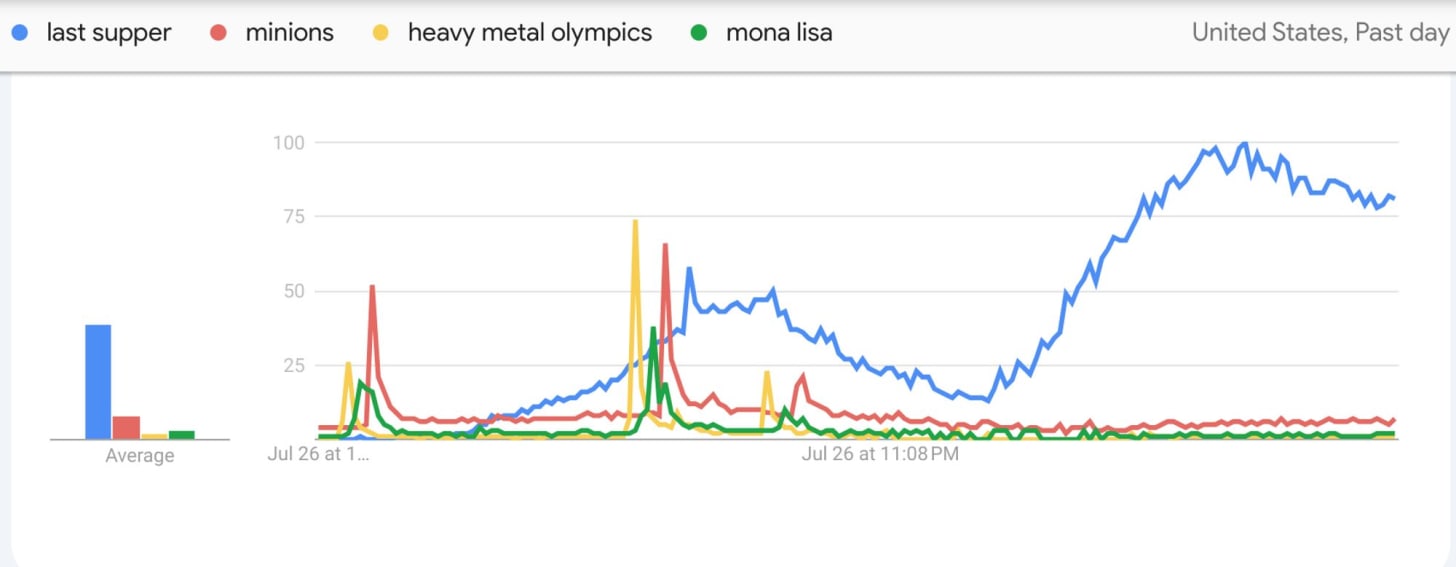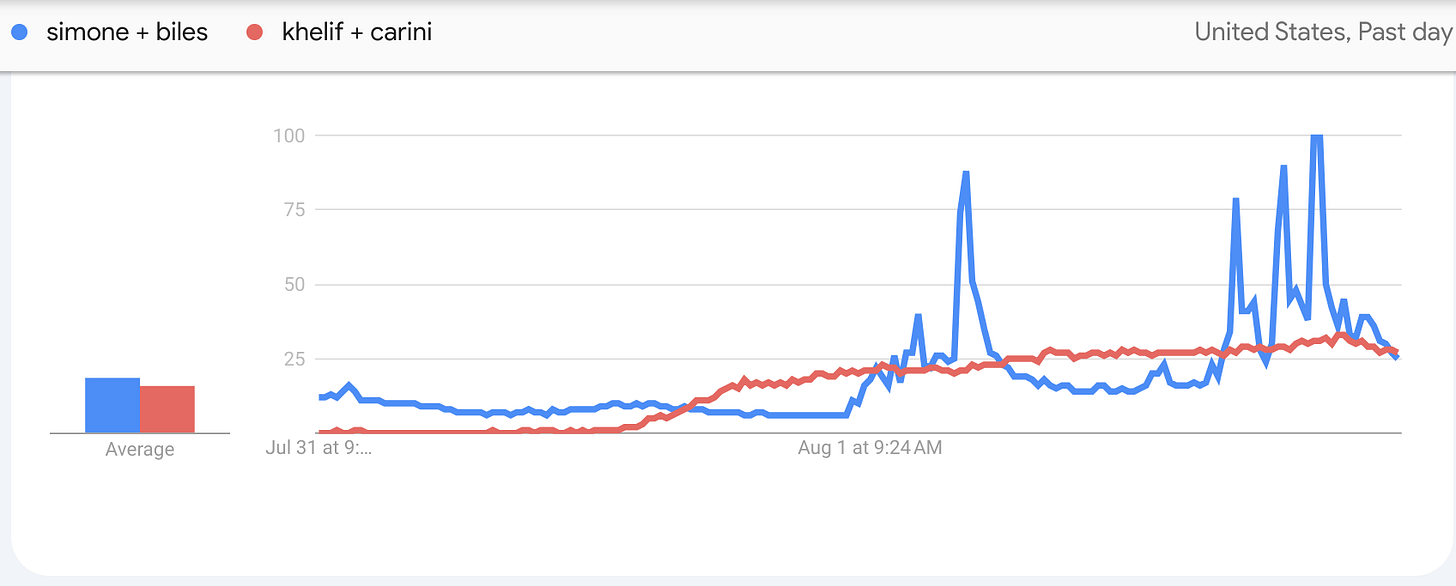Trend of the Day: Biles vs. Boxing Controversy
Another example of how searches from watching an event look different than those spurred by circulated clips
Earlier this week I talked about how search trends around the “last supper” reference in the opening of the Olympics looked different from search trends related to other things people were seeing in the opening (e.g. Minions).
For questions like “Why are Minions in this opening?” you could see people searching in real time as that segment aired or re-aired. The Last Supper searches were different — searches on that reference emerged more slowly, and significantly after the event had aired. This is likely because people were reacting not to the immediate event, but to circulated clips and discourse about the event after the fact.

In looking at Google Trends, when people are reacting to an event in the moment you can connect things that are immediate reactions to the timeline of the event, whereas circulated controversy like the Last Supper doesn’t sync up to the events in the same way, and is often (though not always) less spiky.
Today provided another example; I’m noting it here for future use. You see, at the same time that Simone Biles, one of the best athletes of all time, was winning golds with and for the U.S. team, others were circulating lies about boxer Imane Khelif, claiming she was a trans woman (not true) wrongly allowed to compete.
The contrast provides the mixture of sadness and joy that has characterized so much of the Olympics, where some people watch it for the sports or out of patriotism, and others use it as another way to rage-bait social identity issues.
But note that if you look at the trends data, it’s pretty obvious that the people looking at the “controversy” about the sport are not, for the most part, watching the sport. As with the “last supper” controversy, we don’t see any real initial reaction to Khelif’s win in the moment, the way we see people looking up Biles during her morning wins (Pacific Time) and the night-time replays of her triumph. Instead, as with the “last supper” example, we see consistently rising search interest not tied in any way to the time or events of the match.
This would be striking in any case, but it’s particularly striking regarding a boxing match that had a nearly unprecedented 45-second forfeit. If even a fraction of a fraction of people currently searching Khelif had been watching that match you would see a massive spike somewhere in the series around that time. You don’t.
You can see this in the related queries (rising) as well. Those that search Biles are more likely to have searched other gymnasts. Those that search Khelif are not searching other boxers, but rather asking questions about her biological sex, or looking for coverage or video of the event (“female boxer quits” describes the incident that people have focused on, where her opponent forfeited only 45 seconds into the match):

Not everybody that searched on Khelif necessarily believed that she was a trans woman or that this incident represented a sports tragedy, of course. Some were searching — perhaps many? — to check if what they had read was true. Which is good. But my point is that the pattern seems to be indicative not of a bunch of boxing fans seeking answers about what they just saw in the games, but of people encountering politically framed videos of the event online, far from the actual event.



